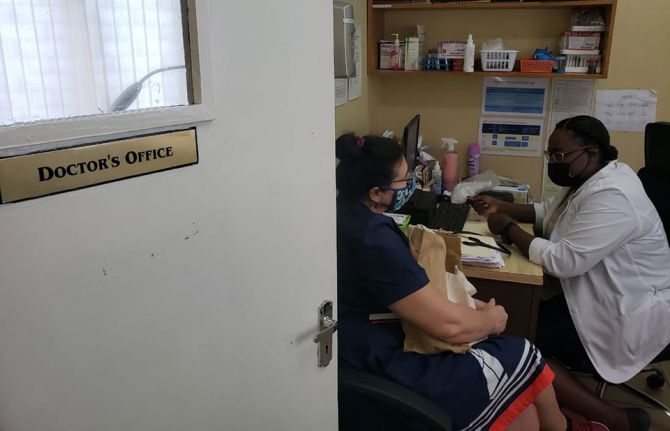

Feature Story
Jamaica commits to improving social protection
05 May 2022
05 May 2022 05 May 2022COVID-19 is having a devastating impact on the Jamaican economy. In 2020, the economy declined by more than 5%. According to the World Bank, the poverty rate increased from 19% in 2018 and 2019 to about 23% in 2020. Working women have been among the most affected by the crisis, accounting for approximately 78% of health-care and humanitarian employees and 55% of staff in industries that are highly susceptible to COVID-19, including commerce and tourism. Jamaica’s tourism industry, for example, which reached 4.2 million visitors in 2019, plummeted in 2020 and 2021 as a result of the global travel restrictions related to the pandemic.
In response, the Jamaican Government has implemented a series of recovery strategies, including a reduction in taxes. It also launched the COVID-19 Allocation of Resources for Employees (CARE) programme, aimed at assisting workers and businesses during these difficult times.
People living with and affected by HIV have also felt the impact. The strains caused by COVID-19 on health-care workers and facilities, compounded by loss of income and movement restrictions, have generated disruptions in access to HIV and other health-related services.
In response, Jamaica’s National Family Planning Board and UNAIDS, in partnership with key stakeholders in the design and implementation of the country’s social protection strategy, including the Ministry of Labour and Social Security, the Planning Institute of Jamaica, the Ministry of Local Government and Rural Development and civil society organizations, collaborated to produce an assessment of national social protection and HIV. The assessment provided a mapping of social protection services in the country, identified gaps in outreach and opportunities to respond to the specific needs of people living with and affected by HIV, such as increasing awareness on the existence of and application requirements to benefit from these programmes, and provided recommendations for the improvement of social protection.
Of the more than 100 people questioned, a considerable number were not aware of the existence of social protection programmes, despite several programmes being offered in the country. There was also an apparent lack of clarity on who is eligible to participate in the programmes. In general, people living with HIV, specifically mothers less than 25 years old who are living with HIV, are among the populations facing the most barriers in accessing HIV and social protection programmes in Jamaica, particularly the Programme of Advancement Through Health and Education (PATH). For example, to apply for PATH, a family score is assessed, which includes all members of the family. Where the family is deemed not poor, it would not qualify for PATH, including the young mother.
“Social protection schemes are critical for ending the AIDS epidemic because they address socioeconomic inequalities, which fuel HIV risk and vulnerability, including stigma and discrimination and other human rights abuses, by breaking down barriers to accessing HIV services,” said Richard Amenyah, the UNAIDS Country Director for Jamaica.
Among its recommendations, the assessment stressed the importance of raising awareness of existing social protection programmes, revising the selection criteria for social assistance, digitalizing enrolment and transfer payments, enhancing local coordination and consolidating labour market programmes.
“Social protection programmes play an important role in cushioning society’s most vulnerable from the harsh social and economic realities brought about by circumstance such as the COVID-19 pandemic. As such, the recommendations of this assessment can only enhance existing social protection programmes and strengthen multisectoral collaboration in this area for the benefit of those most affected, including persons living with HIV,” said Lovette Byfield, the Principal Director of the National Family Planning Board.



